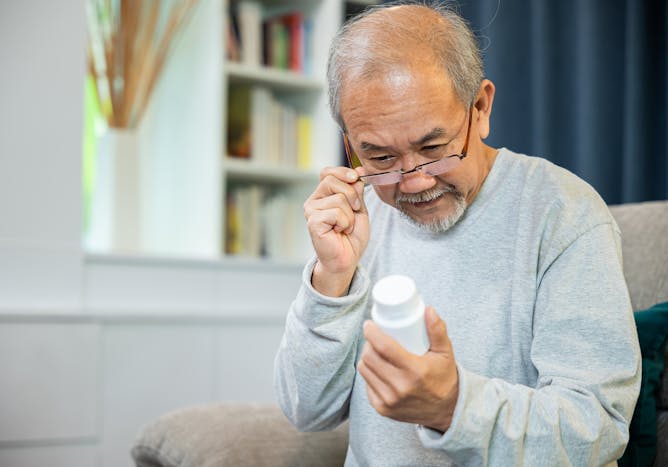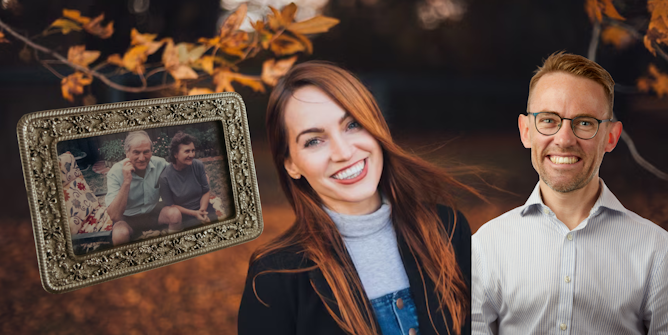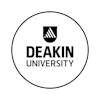|
Since early in the Voice to Parliament debate, a few big questions have been posed about the fairness of the Voice proposal and referendum.
On one side, some argue it’s unfair non-Indigneous people are being asked to vote (and as they’re the majority, ultimately decide) on something that doesn’t directly affect them. Parallels are drawn with the same-sex marriage plebiscite, in which a largely heterosexual majority was deciding on the lives of an LGBTIQ+ minority.
On the other side, some argue the Voice proposal is unfair because it gives rights to one group of people (First Nations people) that others (non-Indigneous people) don’t have.
Given these are questions of “fairness,” we asked Macquarie University’s Head of Philosophy Paul Formosa to weigh in on the ethical and philosophical basis of these questions. His answer to both may surprise you.
|

|
Alexandra Hansen
Deputy Editor and Chief of Staff
|
|

Paul Formosa, Macquarie University
Two big ethical questions have emerged during the Voice to Parliament campaign: is it fair non-Indigenous people will get the majority say? And is it fair one group will get something others don’t?
|

Michelle Grattan, University of Canberra
Australia needed a federal government-inquiry into the management of the pandemic. Albanese recognised this and before the election he indicated Labor would have one. But he was vague about its form.
|

Evangeline Mantzioris, University of South Australia
Fish oil has been promised to provide all sorts of health benefits – from boosting our heart health, protecting our brain and easing arthritis. Here’s how the claims stack up for fish and supplements.
|

Kieran Hegarty, RMIT University
What did Australians do online in the 1990s? Shared bioinformatics data, made cyberfeminist zines, cruised the information superhighway …
|

Renee McKibbin, Crawford School of Public Policy, Australian National University
Complaints that our recommendations would weaken the Reserve Bank governor ignore the fact that outsiders already control the board. We just want them do it better.
|

Renée M Prokopavicius, Western Sydney University; Belinda Medlyn, Western Sydney University; David S Ellsworth, Western Sydney University; Mark G Tjoelker, Western Sydney University
New research reveals how trees respond to extreme heat. Most trees lose more water than models predict. Some species cope better than others. Access to water will be critical for the hot summer ahead.
|

Paul Ginns, University of Sydney
Final school exams are typically seen as a very intense period of preparation. But it is also important to rest during this time if you want to maximise your performance.
|

Jared Mondschein, University of Sydney
Term limits for presidents were only written into the Constitution after the second world war. And members of Congress can still serve as long as they wish.
|

Heather Taylor Johnson, University of Adelaide
Jessica Kirkman introduces readers to her Deaf grandparents’ experience – and to Deaf culture – in her memoir. And Sam Drummond recalls growing up with pseudoachondroplasia (a form of dwarfism) in his.
|

Olympia Nelson, University of Sydney
I was drawn to Mary as a saint, an ascetic, a highly sexual individual navigating her own redemption. Is there something edifying about her story – or does it go into the feminist shame file?
|
Politics + Society
|
-
Michelle Grattan, University of Canberra
Monday’s white paper will define fuill employment more broadly than in the past as when “everyone who wants a job should be able to find one without searching for too long”.
-
Peter Phibbs, University of Sydney; Nicole Gurran, University of Sydney
Other states may well follow Victoria’s lead, but the 7.5% levy is likely to have a very modest impact on rental housing supply. There’s much more governments could do.
-
Patrick Harris, UNSW Sydney; Edgar Liu, UNSW Sydney
Bypassing planning regulations is likely to have impacts on social inequity and wellbeing that could prove very costly for both governments and people.
-
Andrew Dodd, The University of Melbourne
This is a decision that was always going to come in one of two forms: either Rupert dropping off the perch or him leaving on this own terms. He has opted for the latter.
|
|
Health + Medicine
|
-
Jamal Abarashi, Auckland University of Technology; Taghreed Hikmet, Auckland University of Technology
Long-term tidiness can require a consistent approach to keeping chaos at bay. But your possessions don’t have to control your life. New research is showing how tidy people maintain their homes.
-
Lisa Mitchell, Deakin University
Children absorb these stereotypes from a young age. And ageism is all around us.
|
|
Environment + Energy
|
-
Christian Turney, University of Technology Sydney; Lennart Bach, University of Tasmania; Philip Boyd, University of Tasmania
Global efforts to cut emissions fall well short of what’s needed to avoid dangerous warming. It’s becoming essential to develop carbon-removal strategies to get to net zero.
|
|
Arts + Culture
|
-
Dianne Rodger, University of Adelaide
The Calling, the Hilltop Hoods’ third album, would be their first to reach mainstream success.
|
|
| |
|
|
|
NIDA
Kensington NSW, Australia
•
Full Time
|

|
|
|
|
| |
| |

|
| |
| |
| |
Featured Events, Courses & Podcasts
|
View all
|
|
1 January 2023 - 7 October 2026
•
|

|
6 July - 6 October 2023
•
|

|
10 October 2023
•
Melbourne
|

|
19 October 2023
•
Melbourne
|

|
|
|
|
| |
| |
| |
| |
| |
|
|